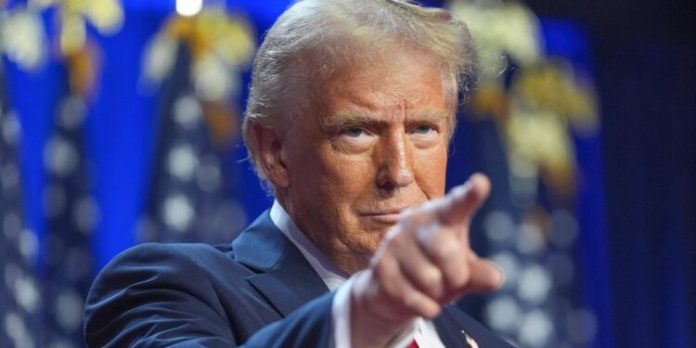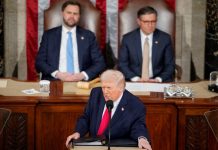U.S. President Donald Trump has renewed his warning of potential military action against Iran’s nuclear facilities, emphasizing that Tehran must swiftly abandon its nuclear ambitions. Speaking during a White House meeting with Salvadoran President Nayib Bukele, Trump declared, “They can’t have a nuclear weapon, and they’ve got to go fast, because they’re fairly close to having one, and they’re not going to have one.”
He added, “If we have to do something very harsh, we’ll do it. I’m not doing it for us—I’m doing it for the world. These are radicalised people, and they cannot have a nuclear weapon.” When asked whether this included a military strike on nuclear sites, Trump responded, “Of course it does.”
The United States, alongside other Western allies and Israel, has long expressed opposition to Iran obtaining nuclear weapons.
Trump, during his first term, withdrew the U.S. from the 2015 Joint Comprehensive Plan of Action (JCPOA)—commonly known as the Iran nuclear deal—which aimed to curb Iran’s nuclear programme in exchange for sanction relief. In response, Tehran gradually scaled back its compliance with the agreement’s terms.
After years of stalemate, the U.S. and Iran resumed indirect talks last Saturday with Oman acting as mediator. The next round of negotiations is expected to take place this coming Saturday in Rome. Trump confirmed the meeting and expressed optimism, calling the situation with Iran “almost an easy problem.”
In a related development, Rafael Grossi, Director General of the International Atomic Energy Agency (IAEA), announced he will travel to Tehran this week ahead of the Rome talks. Grossi stressed the importance of sustained cooperation between Iran and the agency, noting that diplomatic engagement remains essential.
Iran’s limited cooperation with IAEA inspectors and its continued production of uranium enriched near weapons-grade levels remain key points of international concern and a major source of rising tensions.












